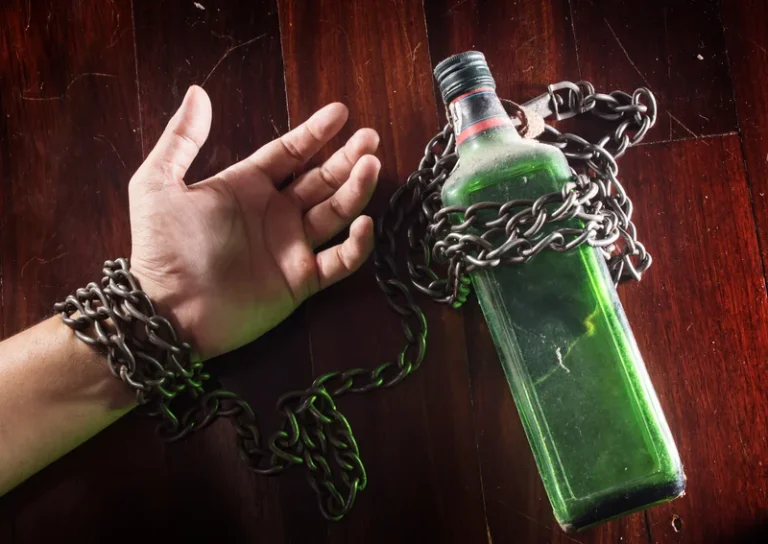She enjoys interviewing medical experts and researchers about their work and is passionate about communicating accurate and relevant health information to the public. Emotionally, you may feel some anxiety or sadness about ending a chapter of your life and nervousness about the future. “You may learn things about yourself and about your relationship to this substance that you never even thought about,” he adds. You can become conditioned to reach for a drink when your environment offers up certain cues. You may also consider joining an online support group to help you feel less alone.
Best Medical Alert Systems of 2024 Chosen by Testers
Each drinking relapse is an opportunity to learn and recommit to sobriety, so you’ll be less likely to relapse in the future. Cravings for alcohol can be intense, particularly in the first six months after you quit drinking. Good alcohol treatment prepares you for these challenges, helping you develop new coping skills to deal with stressful situations, alcohol cravings, and social pressure to drink. Make meetings a priority – Join a recovery support group, such as Alcoholics Anonymous (AA), and attend meetings regularly.
- Framing sobriety as a temporary challenge versus a permanent lifestyle change can make it easier to stay sober for the long haul.
- If certain people, places, or activities trigger a craving for alcohol, try to avoid them.
- Belinda Gordon-Battle is a licensed clinical therapist and life consultant based in Miami while providing therapeutic services across the globe.
- If you don’t already have a supportive network, you can make new connections by joining social media communities dedicated to alcohol-free living.
- Alcohol abuse and addiction doesn’t just affect the person drinking—it affects their families and loved ones, too.
Be aware of your triggers
Others need medical supervision in order to withdraw from alcohol safely and comfortably. Which option is best for you depends on how much you’ve been drinking, how long you’ve had a problem, the stability of your living situation, and other health issues you may have. Let friends, family members, and co-workers know that you’re trying to stop or cut back on drinking. If they drink, ask them to support your recovery by not doing so in front of you. But if you’re living with alcohol use disorder, drinking is more than a habit.

Learn About Treatment Options
She aims to work in office management at a general contracting company. In the meantime, she works on her coursework and recovery with an eye toward improving her life and that of her children. When you’re about to make an impulse purchase, step away from the laptop. In a report last September, the personal finance site Bankrate estimated that American consumers had spent $71 billion over the prior 12 months on impulse purchases inspired by social media. The approaching holidays present a fresh challenge for impulse shoppers, who must try to curb the urge to spend on themselves while also hewing to a gift budget for loved ones.
Common Signs and Symptoms of Denial
Spending time with people who understand exactly what you’re going through can be very healing. You can also benefit from the shared experiences of the group members and learn what others have done to stay sober. Lean on close friends and how to overcome alcoholism family – Having the support of friends and family members is an invaluable asset in recovery. If you’re reluctant to turn to your loved ones because you’ve let them down before, consider going to couples counseling or family therapy.

Alcohol Rehab Aftercare and Ongoing Support
- The decision to change is one of the most important steps in overcoming an addiction.
- For 3 to 4 weeks, write down every time you have a drink and how much you drink.
- Though she had started college, a series of DUIs led to probation, a traumatic brain injury and a failed attempt at rehab.
- Replacing alcohol with healthy activities that do not encourage drinking can be a healthy alternative.
- To get started, try searching a directory like Psychology Today or Inclusive Therapists, both of which have filters you can use to look for specific support around substance use.
- Self-help books or apps are less likely tohelp you successfully quit if you are addicted to alcohol.
- Distance yourself from people who don’t support your efforts to stop drinking or respect the limits you’ve set.
When that person cuts out alcohol, there is a period when their brain hasn’t yet received the message and still overproduces the stimulating chemicals. With alcohol out of the equation, though, these chemicals cause withdrawal symptoms. When someone drinks alcohol for a prolonged period of time and then stops, the body reacts to its absence. This is alcohol withdrawal, and it causes uncomfortable physical and emotional symptoms. A tranquiliser called chlordiazepoxide is usually used for this purpose.
- Information provided on Forbes Health is for educational purposes only.
- The risk of dying from an overdose is extremely high if you have been through withdrawal because your tolerance of the drug will be much lower than it was before you quit.
- Dealing with an alcoholic also means dealing with alcoholism’s effects in an honest way.
- How and where you attempt detoxification will be determined by your level of alcohol dependency.
- For people at low risk of complications, an office visit to your primary care provider, along with at-home monitoring and virtual office visits, may suffice.
- Recognizing and overcoming denial, both at the start and throughout your recovery journey, is crucial for lasting sobriety.
- Find a supportive friend or family member to be with you while you withdraw and support your new non-drinking lifestyle.
- Find activities that are mentally and emotionally nourishing and bring you joy, and identify ways to connect socially with friends, says Witkiewitz.
- You’ll get a 100% custom plan, then daily texts to track your progress and help you stay on target.
- People at high risk of complications should enter a short-term in-patient detox program.
- If you’re reading this page, you probably aren’t oneof those people.
The mental challenge of this stage is not to let anything make you feel defeated. If you’re ready to make a positive change, here’s what you may want to know about the recovery process. Make it clear that drinking will not be allowed in your home and that you may not be able to attend events where alcohol is being served. If you turn to alcohol to ease anxiety, try exercise as a healthy alternative.
How to Deal with an Alcoholic – Stop Alcoholic Denial
An important first step is to learn more about alcohol use disorder and your treatment options. Avoiding external and internal temptations may require an individual temporarily distancing themself from certain people or events and deep reflections on urges that arise from within. Doctors, nutritionists, and counselors can also help support people to stop drinking alcohol. Support can come via therapy, support programs, family, and friends. Teaming up with another person can help people stay accountable. Structured self-affirmation exercises that take up less time, such as answering a series of yes or no questions, can also be effective in helping people reduce or stop drinking alcohol.

Ways to Remove the Denial Around Living with an Alcoholic:

You can also talk to a doctor about medications that can help you cope with the symptoms of withdrawal. Perhaps the hardest preparations to make concern social relationships. For people living with addictions, some of their relationships may revolve around addictive behaviors. Other ways to prepare include deciding what approach you plan to use to overcome your addiction and getting the resources that you need to be successful. You may find it helpful to look for mutual support groups, such as Alcoholics Anonymous and other groups, where you can connect with people who share experiences similar to yours. A support group specifically focused on alcohol recovery can provide valuable encouragement and information that can aid you on your road to being free from alcohol.
This often means getting rid of paraphernalia or other items that might trigger your desire to use a substance or engage in a harmful behavior. You may also find it necessary to change your routine so that you have less contact with people or settings that trigger cravings. According to one model of behavior change known as the transtheoretical model, making any kind of change involves a process that starts with pre-contemplation and moves into contemplation. Relapses happen during rehabilitation, but what’s important is how you move forward from it. You may want to talk with a loved one or therapist about why it happened and what you can do differently next time.